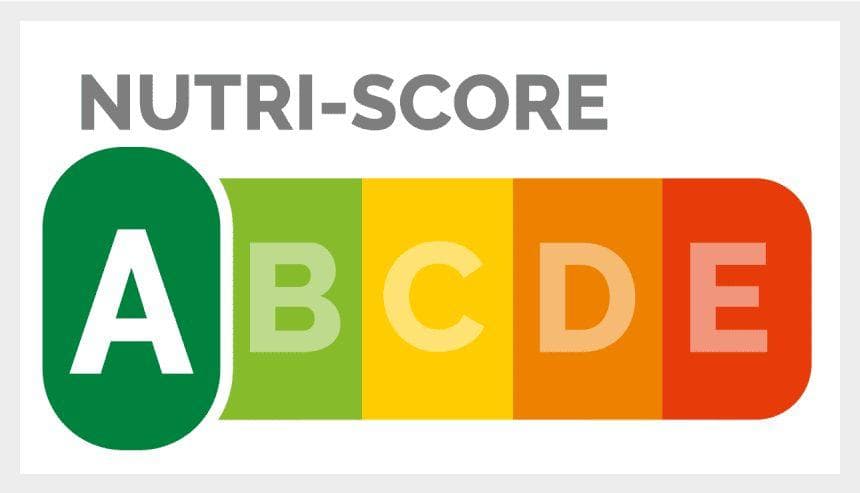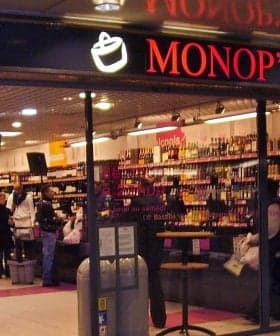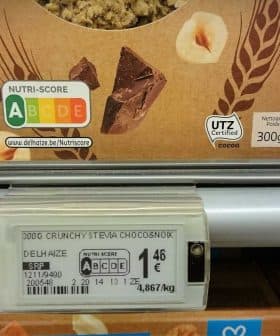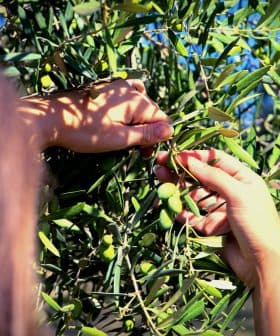Legislation in Switzerland Would Prohibit Nutri-Score
The Swiss Council of States has approved a motion to reconsider the adoption of Nutri-Score as a front-of-pack label due to concerns about its limitations and potential impact on traditional Swiss products. Despite the support for the motion, the Swiss Federal Council opposes it, warning that revoking Nutri-Score could have consequences for the country’s nutritional guidelines and public health initiatives.
A parliamentary initiative might make Switzerland the first country in Europe among those that adopted Nutri-Score to change course and prohibit the front-of-pack label (FOPL).
The Swiss Council of States, one of the two branches of the parliament, has approved a motion of the Commission for Science, Education and Culture asking representatives to consider the potential negative outcome of Nutri-Score’s adoption.
According to the motion, a healthy diet requires a broad approach to eating and can not rely on scores assigned to single food packages.
See Also:Public Health Groups Urge E.U. to Expedite Introduction of Front-of-Pack Food LabelsNutri-Score is a traffic-light-style FOPL that uses a combination of five coordinated colors and letters to rate how healthy a packaged food item is based on its fat, sugar, salt and calorie content per 100-gram or milliliter serving. The “Green A” indicates the healthiest option, and “Red E” denotes the least healthy.

Benedikt Würth, the commission’s representative at the council, told his colleagues that Nutri-Score has several flaws, including the fact that it does not discriminate between ultra-processed and non-processed foods.
Würth added that Nutri-Score does not consider additives, the product’s origin or sustainability.
As a result, Würth said traditional Swiss products, such as cheese, are penalized for their high-fat content, while an ultra-processed alternative may receive a higher score.
Given the endorsement of the motion by the majority of the chamber’s representatives, the motion will soon be discussed at a national level.
The Swiss Federal Council, the national government, sided against the motion underlining that Nutri-Score is voluntary for producers and retailers and does not represent the national nutritional guidelines.
Swiss President Alain Berset warned that should the parliament approve such a position, the country’s adaptation of Nutri-Score might have to be revoked.
Berset’s warning comes a month after the Romanian government banned Nutri-Score.
According to Tassos Kyriakides, an assistant professor at the Yale School of Public Health, the fact that Nutri-Score does not consider food additives and their impact on health is just “one of its flaws.”
“I agree with providing the consumer a clear and concise information on a label,” Kyriakides told Olive Oil Times.
“The problem arises when you apply that across the board for every product, every food, every nutrient, without understanding that it is not just about the calories,” he added. “[The label] should concern the context of how [a specific food] is used.”
“Take a soft drink, one with no calories, as there is no sugar,” Kyriakides continued. “The context is how much you consume of that and what implications it has for your health.”
The Yale professor, among the organizers of the International Yale Symposium on Olive Oil and Health, noted that different labels could be applied to different food to be efficient in helping consumers.
“Take olive oil, with its unique characteristics,” Kyriakides said. “A [vegetable] oils dedicated labeling could help consumers choose among such oils. With Nutri-Score, they must compare olive oil to a soft drink.”
Nutri-Score founder Serge Hercberg explained how the rating system supports consumers’ choices within food categories.
In a 2020 Olive Oil Times interview, he argued that the labels help consumers compare two or more similar offerings.
However, Kyriakides said Hercberg’s argument in favor of Nutri-Score is not as straightforward as it sounds.
“If consumers who do not know about olive oil are exposed to the Nutri-Score labels, they can well think that a soda drink would be healthier than olive oils,” he said.
With the last update to the Nutri-Score algorithm, olive oils are now classified as “Light-green B” instead of “Yellow C.” In a recent statement, Hercberg clarified that olive oil will never get a “Green A” as it is a fat.
That means that 100 milliliters of olive oil cannot qualify for a Green A. Hercberg noted that such a rating does not reduce the proven health benefits of olive oil.
“If the intent is to inform the consumers about healthy choices, then [not labeling it as a Green A] means that you just ignored a big component of what olive oil brings,” Kyriakides said.
The Yale professor also noted how all olive oils are rated “Light green B” by Nutri-Score, meaning the algorithm underlying the FOPL does not consider the bioactive compounds that differentiate that make extra virgin olive oil stand out from all the other grades of olive oil.
“With its rating for olive oil, Nutri-Score is not helping the Mediterranean diet,” Kyriakides said. “People who turn to the MedDiet because they heard that it is healthy soon learn that olive oil sits at its core as a healthy superfood. Then they go in a store and see that it gets maybe a B or more probably a C.”
“The question is the context: how are you consuming [a food such as olive oil]? What are you consuming with that? How did it come to be part of [such consumption]?” Kyriakides added.
“Take olive oil and frying,” he continued. “We know that if you fry your veggies with extra virgin olive oil, compared to any other olive oil, you will absorb nutrients much better. There is synergy there.”
“You have to talk about that synergy, not the stand-alone products,” Kyriakides said. “If you are driven by calories, you miss all of these interactions, and there are many more examples of that.”
“In the intent to create an easy labeling for food products, this is actually creating more confusion,” he added.
Nutri-Score researchers have long argued that the FOPL does not harm the Mediterranean diet.
In a 2022 interview, Hercberg praised the Mediterranean diet and told Olive Oil Times, “the Mediterranean diet favors olive oil among added fats but does not recommend its consumption ad libitum.”
“The Mediterranean diet does not, therefore, under any circumstances… promote cheeses and processed meats,” Hercberg said.
However, Italians disagree. At the forefront of the opposition to the possible introduction of Nutri-Score at a European level, Italian farming associations, food producers and local and national governments have repeatedly criticized the French FOPL.
Recently, the Italian Minister of Agriculture, Food Sovereignty and Forestry, Francesco Lollobrigida, said Nutri-Score falls short of warning against Italian food products.
In his words, the FOPL does not differentiate quality products. Instead, it “guides and influences [the consumers] in the name of algorithms towards some productions that have little to do with natural processes.”
His words came on the heels of a statement of the Italian farming association Coldiretti according to which the FOPL “only focuses on a very limited variety of nutritional substances (such as sugar, fat or salt) and the energy intake without considering the portions, paradoxically excluding from the diet 85 percent of Made in Italy quality products.”









